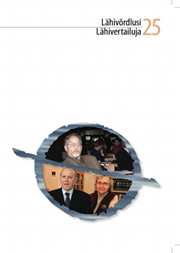Oppimiskontekstin vaikutus oppijanpragmatiikkaan: astemääritteet leksikaalisina nallekarhuina
Learning context and its effect on learner pragmatics: Degree modifiers as lexical teddy bears
Author(s): Jarmo Harri JantunenSubject(s): Language studies, Language and Literature Studies, Theoretical Linguistics, Lexis, Finno-Ugrian studies
Published by: Eesti Rakenduslingvistika Ühing (ERÜ)
Keywords: learner language; learning context; corpora; keyword analysis; n-grams; degree modifiers
Summary/Abstract: The article focuses on the role of learning context in language acquisition.Learning context here refers to environments in which languages are learned:either a foreign language environment (often isolated from the target society,culture and language; mostly in a classroom and educational setting and consisting of formal learning) or a second language environment (surrounded by the target language, culture and society; often a natural setting outside of the classroom and comprising informal learning). Previous studies have shown that educational settings have an effect on how language is learned and which skills(e.g. pragmatic or grammatical competence) are mastered earlier.The data for this study come from four corpora. There were two learner corpora: the International Corpus of Learner Finnish (ICLFI), consisting of foreign language data (texts produced by learners studying Finnish outside Finland); and the National Certificate Corpus (NCC), consisting of second language data (texts produced for proficiency tests in Finland). Both sets of data are rated according to the Common European Framework of Reference for Languages (CEFR, Council of Europe, 2001). The data for the present study comprise texts rated at level B1. The size of the ICLFI B1 data is 102,000 tokens and the NCC B1 data 23,500. In addition, two native language corpora and Internet data are used in the study.Keyword analysis showed that certain degree modifiers are overused in the NCC compared to ICLFI, which indicates that the learning context may affect learner production. The results, however, seem to be contradictory as well as more complex than they appear. They support the conclusions of previous studies that suggest learners overuse degree modifiers in general. However, the range of degree modifiers seem to be more restricted in the second language production data than in the foreign language data. Furthermore, both learner groups tend to favour certain lexical teddy bears, but these differ according to the learner group and learning context. Finally, the study reveals that the usage of degree modifiers is related to syntagmatic associations (collocations)and situational context (spoken vs. written language) and that the associations deviate from lexical structures produced by native speakers.
Journal: Lähivőrdlusi. Lähivertailuja
- Issue Year: 2015
- Issue No: 25
- Page Range: 105-136
- Page Count: 32
- Language: Estonian

